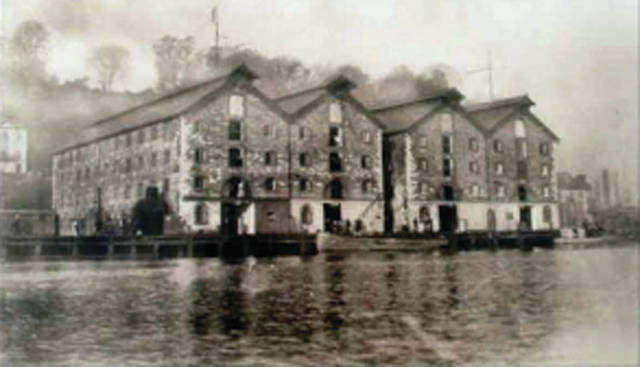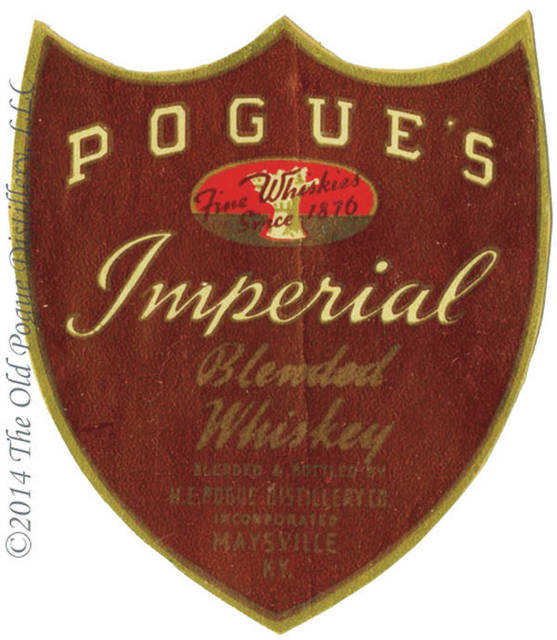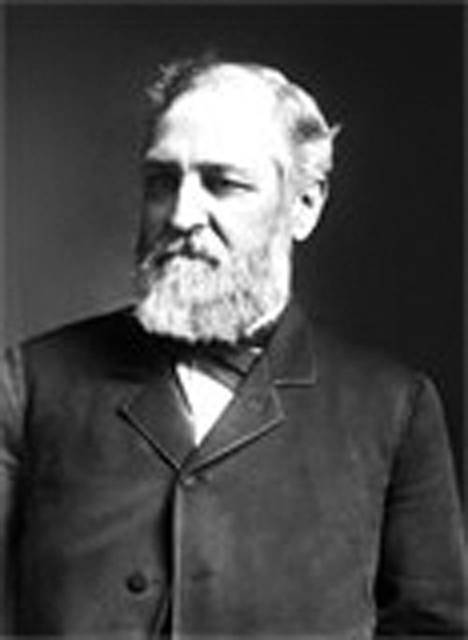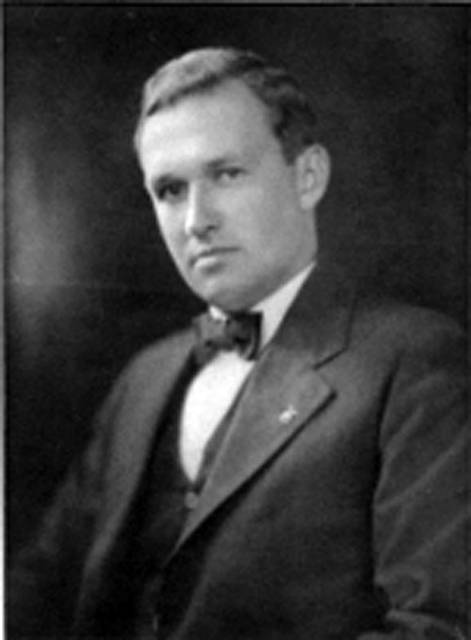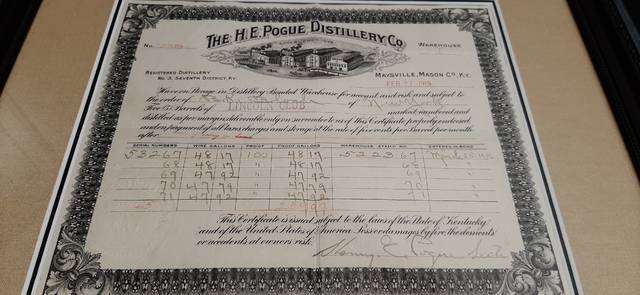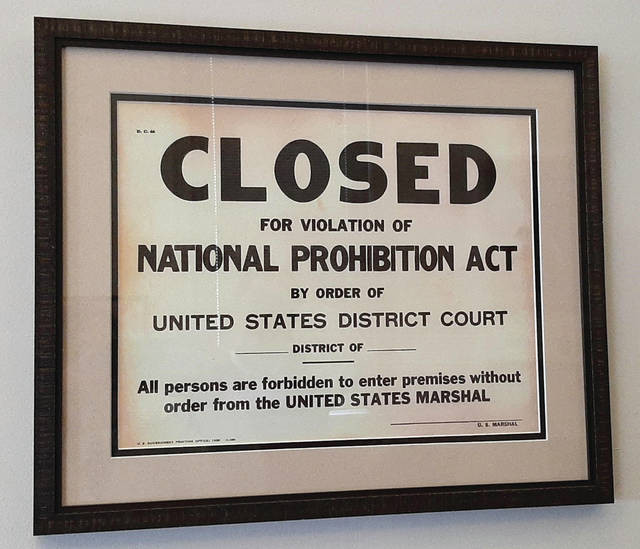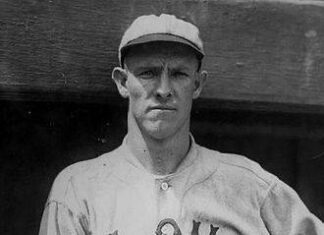Friday, Jan. 17, 2020, will mark 100 years since the original enforcement of the Volstead Act, commonly known as Prohibition.
While thousands of bars, restaurants, retail establishments, and even distilleries, will be celebrating this “momentous” occasion, those whose lives and livelihoods were devastatingly affected by our Federal Government’s cruel “noble experiment” will be marking the occasion in a more somber fashion. We will be reflecting on the number of hard working men and women economically displaced, and those whose lives were irreversibly affected, by this 13 year fiasco, doomed from the beginning to have any meaningful impact to cease America’s habits of consuming “spirituous” beverages.
The Volstead Act, originally passed by Congress in December 1917, was then sent to the individual states for ratification. State legislatures moved to endorse the amendment after years of politically charged debate across every state. On Jan. 16, 1919, Nebraska became the 36th state to ratify the Eighteenth Amendment giving the amendment the three-fourths majority of states needed for enactment of the measure. Congress approved the 18th Amendment on Oct. 28, 1919, overriding President Wilson’s veto. The resolution’s provision that the prohibition of “the manufacture, sale, or transportation of intoxicating liquors within, the importation thereof into, or the exportation thereof from the United States and all territory subject to the jurisdiction thereof for beverage purposes is hereby prohibited,” was to go into effect within one year of the states’ ratification. January 1920 loomed. The Prohibition Amendment remains the only Constitutional Amendment to eradicate our citizens’ individual rights as opposed to conferring individual rights on U.S. citizens.
Our grandfather, Henry E. Pogue III, volunteered for the Navy in World War I on April 12, 1917, at the age of 22. His father, H.E. Pogue II, was the second generation distiller and owner of the H.E. Pogue Distillery, Inc., in Maysville, founded in 1876. Many writers of bourbon whiskey history document Maysville, Mason County, Kentucky, as “the birthplace of bourbon.” When H.E. Pogue II was killed in a distillery accident on March 2, 1919, our grandfather, H.E. Pogue III, became the distiller and owner of the H.E. Pogue Distillery, Inc. At the time H.E. Pogue III assumed the reins of the H.E. Pogue Distillery, the distillery employed more than 150 people in Maysville. The distillery had a mashing capacity of more than 50 barrels of whisky daily. A newspaper article at the time stated, “it is said by those who know that there is no better distillery in Kentucky”. Original correspondence from the early 1900s reveals orders from Arizona, Oklahoma, and even as far as Japan. The newspaper account went on to report that the Pogue Distillery had “built up a large business strictly through honorable methods” and “enjoyed the reputation of being one of the best known and best patronized in the State of Kentucky.”
Within months of assuming responsibility for the distillery at the age of 23, the Federal Government ratified the Volstead Act. Our grandfather had to end the employment of 150 people whose livelihoods depended on working in the distillery. Maysville, had approximately 5,000 citizens in 1920. These people whose livelihoods were destroyed had no other means of employment. The distillery also had 120,000 square feet of warehoused whiskey, the value of which became virtually useless almost overnight. A newspaper article dated Aug. 11, 1926, noted that the distillery’s warehouses ceased operations as a federally approved government storage warehouse. The article concluded, “So many thousands of barrels have entered and departed that if turned into terms of money at bootleg prices, it would far exceed the national debt. The passage of the Volstead Act made sure the passing of this business.”
During Prohibition our grandfather was forced to sell warehouse receipts, the legal currency for barrels stored in warehouses, for pennies on the dollar. The owners of these warehouse receipts were the rightful owners of the barrels listed on the receipts.
Most of these warehouse receipts were legally sold and purchased by opportunistic bootleggers such as “The King of the Bootleggers” George Remus. Remus is legendary in Prohibition history as a pharmacist turned lawyer turned bootlegger, who moved to Cincinnati in 1920 to establish bootleg operations so he could be within 150 miles of 80 percent of the whiskey in the United States. Remus made $75 million between 1920 and 1922, and his bribery of government officials is said to have gone from the lone gauger at distilleries (the government employee responsible for keeping track of distillery stock) to the inner circles of President of the United States Warren G. Harding.
Having been forced to conduct business with the likes of George Remus undoubtedly took a huge personal toll on our grandfather, a very honorable person who had a wife and two young children under the age of 5 at the time (our father and uncle). Our grandfather began carrying a pistol on his hip and corresponded continuously with Remus and his “lieutenants” responsible for conducting the “seedy” side of Remus’ bootlegging empire. Numerous letters enclosing tax documents to Remus, who eventually went to jail for tax evasion, and notes of Federal Revenue agents appearing at the distillery looking for documents pertaining to Remus, all were agonizingly documented in letters in our possession sent to Remus in 1920 and 1921. One can only imagine the world our grandfather endured in less than one year after overseeing one of the most respected distillery businesses in the United States to conducting business with the likes of George Remus. He easily had to fear for his own life and those of his young family on a daily basis. And this, all due to a great failed “noble experiment” by our government. In fact, both our father and our uncle frequently lamented in their later years their father, H.E. Pogue III’s stern edict to “never go into the whiskey business” due to its cruel nature.
Even those in the temperance movement at the time and the leading crusaders of the Anti Saloon League acknowledged that Prohibition would likely not cease America’s ability to obtain alcohol. Prohibition is said to be responsible for today’s organized crime syndicates, the illegal drug trade, the loss of millions of dollars in tax revenue for the government at the beginning of the Great Depression, unemployment for tens of thousands of individuals who relied on the distilleries, bars and restaurants for their livelihoods, and many other continuing effects. So, while some may see the anniversary of the implementation and enforcement of Prohibition as a time to celebrate, we will take the time to remember the devastating effects it had on our family, our distillery, and the lives of countless others that could have been avoided.
Peter H. Pogue is the president of The Old Pogue Distillery, in Maysville, often referred to as “bourbon’s birthplace.” The Old Pogue Distillery was reincorporated in 1998 and is a family owned distillery situated on the family’s original distillery grounds. The distillery operates under its original number of DSP-KY-3. The information for this article came from preserved documents in the Pogue family’s possession, many of which are on display in the museum exhibit at the Kentucky Gateway Museum Center in Maysville.
